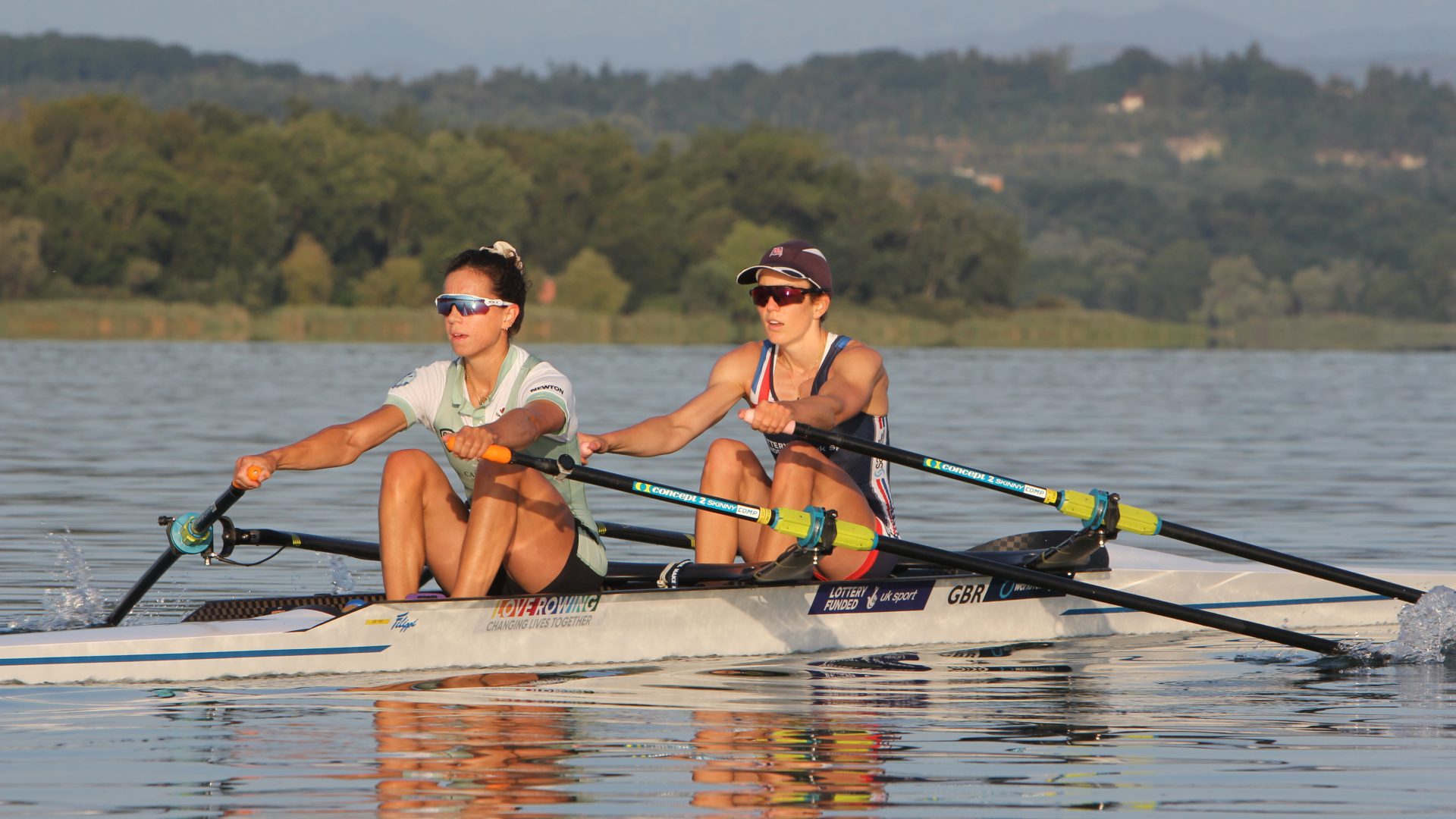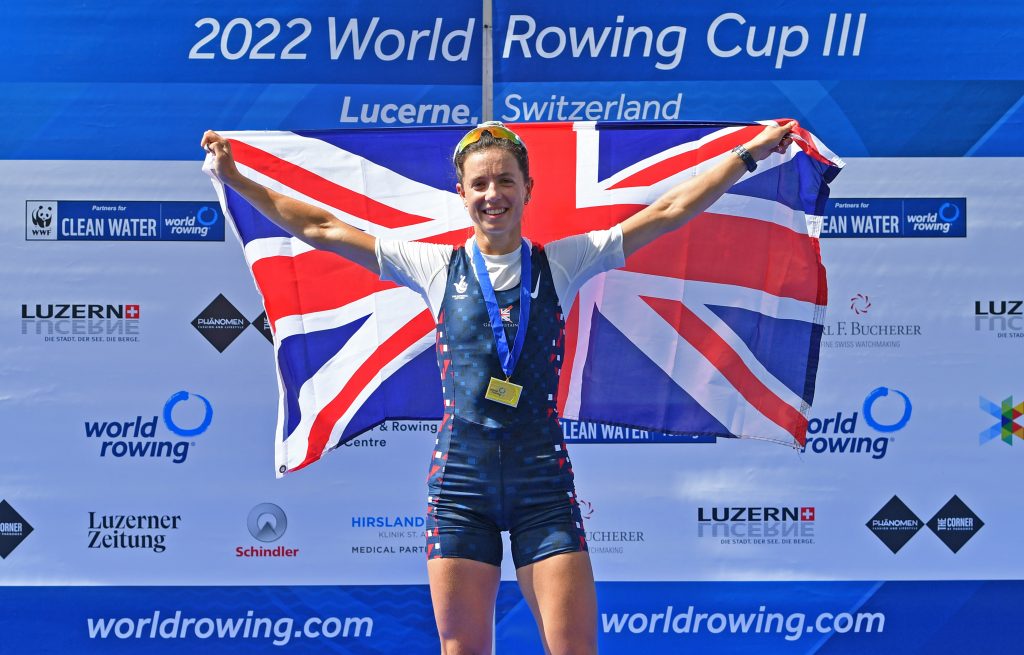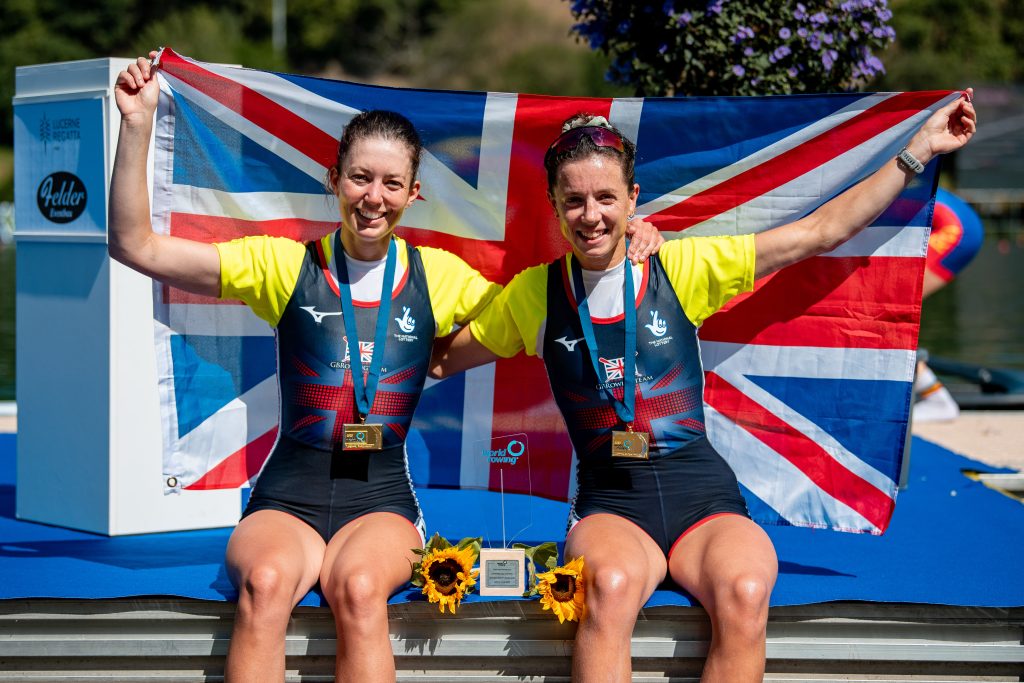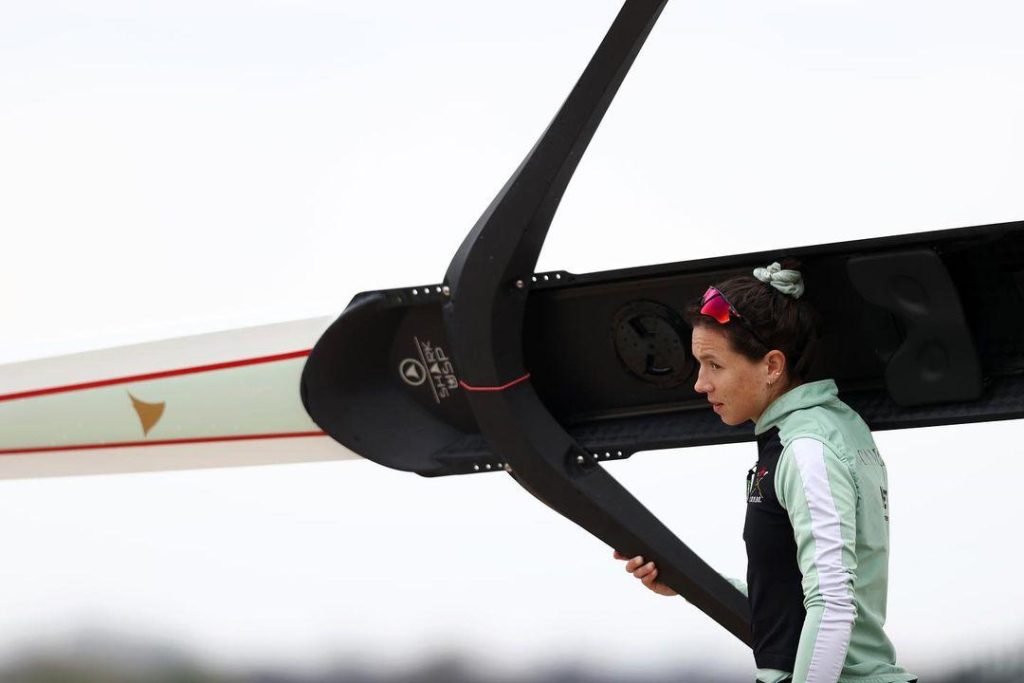
Olympic Rower Imogen Grant meets Our EDI Manager Yvette Curtis
With Paris approaching, Imogen is training hard for the Olympics, but through her connection to the water, she is also becoming an activist and an advocate of our blue spaces.
Our Equality, Diversity and Inclusion Manager, Yvette, talks all things Olympics and activism with athlete Imogen Grant.
Yvette – how’s the training going?
Imogen – It’s really exciting. This is the first training camp of the Olympic year, so it comes with a bit of added focus and excitement, which is really great. Last season for me was a pretty incredible season, I graduated from medical school, we won the World Cup Series, we became European champions and World champions, me alongside my doubles partner, Emily. So it’s a really exciting position to be in in the lead up to the Olympics this year.
Yvette – That is incredibly exciting! Is being in an Olympic cycle really different than a normal competitive year?
Imogen – In a lot of ways it is business as usual, we don’t make that many changes in the Olympic year. The main one is mostly that the season itself is a bit shorter. Often in rowing, the World Championships are in September, this year, the finals are right at the beginning of August. So it’s almost two months shorter than the usual season. So things tend to come quite thick and fast. The racing starts a little bit earlier than usual. I’m out of the country for a portion of every single month leading up to the games, so things just go really quickly.

LUCERNE, SWITZERLAND – JULY 09: Imogen Grant of Great Britain wins the Gold Medal in the Lightweight Womens Single Sculls Final during Rowing World Cup 3 at Rotsee on July 9, 2022 in Lucerne, Switzerland. (Photo by Chris Ricco/Getty Images for British Rowing)
Yvette – I bet they do. So when you say you’re out of the country, is that because the training camps are all at different locations, is that due to just the facilities or any other reasons?
Imogen – It’s training camps, that’s where we are at the moment, and we have another one just before the first race of the season. But then all of the registers that we go to in preparation are all abroad as well, in different locations throughout Europe, so we have to travel to them in order to race, then back to the UK. During the winter, it’s a little deceptive given that we’re travelling so much at the moment, but we spend the majority of our time at the National Training Centre just outside of Reading.
Yvette – do you put the pressure on yourself as well? Is it quite emotionally draining?
Imogen – It can be very draining and it can be very stressful. There’s a lot of things riding on it. This is what we do full time as rowers, we’re very lucky to be funded by the National Lottery so that we can train full time three times a day, six days a week, to make sure that we’re in the best shape to compete internationally. But it means that you spend an awful lot of your time doing just one thing. So there’s quite a lot of pressure for that to go very well. I love it, though. I think it’s such a privilege to be able to do what we get to do and just enjoy being outdoors. So often, I think it’s one of the most special things that we get to do, and day-to-day life.
Yvette – What I found really interesting when I was doing some background was that you’d only just started rowing when you went to university. Is that right?
Imogen – Yeah, it was a funny one. I really wasn’t intending to start rowing at Cambridge even though it’s a very traditional thing to do. I think it’s nearly 2000 students per year try rowing at Cambridge and Oxford independently. So it’s very much baked into the university experience. But I wasn’t planning on learning to row. I really enjoyed sailing and climbing and other outdoor sports and I was going to do those and study really hard. But during Freshers Week, the boat club held an event called boatie cocktails. So, if you signed up for a rowing taster session, you got a couple of free drinks. This was definitely the way that a lot of rowers got started at Cambridge, some very good rowers, not just me, but I put my name down for the taster session, got a couple of free drinks, wasn’t really planning to go to the taster session later on, but I felt bad and went anyway. And it really just took off pretty quickly from there. I loved the camaraderie; I loved the enthusiasm. I loved seeing the improvements, every single session that we were doing. And yeah, the bug just really bit me.
Yvette – That story is amazing. I love it. You were part of the initial Powered by Purpose with UK Sport for 2023, do you think that having that sort of initiative was useful for you finding a different edge to your voice that was away from being a sports person?
Imogen – Doing the Powered by Purpose programme was something that I applied for on a whim. It sounded really exciting. But I definitely didn’t know if I was qualified for it. But I’d say the programme, and the second phase, part of the cohort that I’m doing at the moment, has really changed the trajectory of what my athletic career has focused on. I’ve always been really passionate about sustainability, but I never quite knew how to marry that up with what I do on the water and as a sports person. The programme really just filled me with so much confidence and ideas and enthusiasm and support, and surrounded me with like-minded athletes, all of whom were equally passionate about whatever cause they were championing. The reception so far has been really amazing, it’s been really, really cool, being more open about something that I care a lot about, and it’s definitely also given me the momentum to actually make more changes myself. I’m now an ambassador for the Rivers Trust. I went vegan in January of last year, and I feel like I’ve got more confidence and always permission to, yeah, to represent more, more of me.
Yvette – Have you noticed changes to the aquatic environment from rowing so much?
Imogen – I think one of the big ones for us as rowers is flooding in the UK, and there’s been even more examples of that this year. The National Training Centre essentially became an island a couple of weeks ago.
I’ve done a lot of rowing on The Tideway on the Thames in London, that’s just a really sad story of a really dirty river, to be honest. I think rowing is quite an interesting sport, because it’s on the water a lot of the time, but we don’t spend a lot of time in the water. But when you look at the rivers that rowers row on, so many of them aren’t safe for people to swim in. And we’re just inches away from that same water.

Yvette – You train abroad in different waterways and different areas. Would you say there’s a difference in the quality here and the quality elsewhere? Or do you see this as more of as a global issue?
Imogen – I definitely think it’s a global issue. But I think I’ve seen differences, both good and bad. There’s a couple of places that we go and train where the water itself is a drinking water reservoir. So it’s extremely limited what craft is actually permitted to row on that water. It’s really lovely, because you don’t have cruisers going up and down spilling petrol into it, and it’s a really pleasant place to row. I suppose on the other end of the spectrum, the one of the lakes that we go and row on, was widely known, maybe five or six years ago to be one of the most polluted lakes in Italy, dangerous to row in with algae and things like that. And there’s been quite a large effort to try and clean that up to try and make it better for swimmers and make it safer. So I think I’ve seen improvements as well. But I think it is a global issue. Our waterways are becoming more and more under pressure from everything that’s being dumped into them. With climate change, and things like further rainfall, further pollution, further flooding, it’s just a negative cycle that’s really depleting our rivers.
One of the things that the Power by Purpose programme gave me was being able to meet with other people from other water sports, and actually hearing their issues, reminding me of my own issues with the same thing, as sports people and as water sports people we’re uniquely placed to really understand what the waterways need. Because we spend so much time on them, and in them, and next to them, that it’s really just really knitted into the lifestyle that we lead.
So we’re acutely aware of what the temperature might be, what the flow rate might be, what the wind is going to be, because it really entirely affects how we are able to do our own sports. And, yeah, there’s some really exciting work going on behind the scenes at the moment, fingers crossed, working with a number of NGBs [National Governing Bodies], within the UK that are all water based to see if we can join our voices together and have a much louder impact on trying to improve our water within the UK.
Yvette – After Paris, and after you’ve made that decision on what’s happening with your rowing, do you think that now, you feel so much more empowered, and you’ve got more agency over your own sort of thoughts? Do you feel that maybe you might go into something more activism and advocacy?
Imogen – I think it’s going to be part of my identity forever, along the lines of living in line with your values, giving you more empowerment, once you’ve decided that something’s important and you care about it, you just notice it more and more and more in the world around you. It definitely serves as a ripple effect to change other aspects of your life. I’m trying not to buy any new clothes this year, for example, that was my next step, to influence my personal impact on this side of things. I’d like to think that if I just keep trying to take these next steps that feel important to me, from what I see, from what I think’s really important to deal with, I always want to try and use my voice for good and to advocate for the things that I feel as important. I’d say, for me, it’s a bit of a tricky decision in terms of career, I’ve accepted a job as a foundation doctor that will start in August of this year, which is very exciting. So that’s going to take up a bit of my time. But I know that I’m somebody who thrives off of having lots of eggs in different baskets, and enjoying just having lots of things I’m interested in, and the rivers, our waterways, the seas, the climate, is always going to be one of those things, as well.
I think as a GP, or as going into being that foundation doctor, the intrinsic links between human health and our environment, are massive, and are hugely underreported and undervalued, it’s something that the research is only just starting to catch up on and only just scratching the surface of, so I guess in many ways you are incredibly well placed to actually take that initiative and take that information forward in your career as a doctor because, you’ve got that link from both sides of how our humanity is linked to the world around us and how we can kind of actually gain perspective of that I imagine. That’s a huge part of the GPS that I’m friends with, that’s a really big part of how they behave as doctors now and how actually human health and natural the natural world are becoming finally linked together.
Yvette – , Thank you, Imogen, I am so grateful for your time this morning, all I can say is the best of luck for the coming months as all that hard work and training culminates in Paris, and we look forward to hearing more and working with you in the future.

Wishing Imogen all the best at this year’s Olympics, and a huge thank you to her for platforming the UK’s polluted water crisis.
